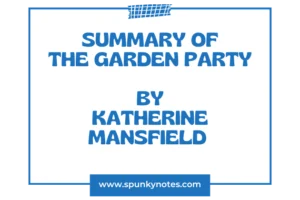
Q. Write a note on the theme of British domesticity in Philip Larkin poetry.
Philip Larkin‘s poetry offers a view into the post-war British domestic scene. It captures everyday life with its highs, lows, and sometimes harsh realities.
His poems do not focus on grand historical narratives. Instead, they portray personal domestic experiences with both honesty and a sometimes cynical perspective.
The Theme of British Domesticity in Philip Larkin’s Poetry
Philip Larkin’s poetry often focuses on British domestic life, showing both its comforts and its struggles. His poems show ordinary people’s routines, relationships, and quiet disappointments.
He writes about homes, marriage, work, and ageing realistically. His poems reflect British domesticity by portraying daily life honestly and sometimes with sadness.
Larkin’s writing style is simple but meaningful. He does not use grand words to describe life. Instead, he presents small moments that reveal bigger truths about British family life, love, and routine.
His poetry often shows that home can be a place of warmth, loneliness, and regret.
Marriage and British Domestic Life
Marriage is an integral part of British domesticity. Larkin writes about marriage not as a perfect union but as something that often leads to routine, disappointment, or emotional distance.
In “Talking in Bed”, Larkin describes a married couple lying together in bed. Instead of feeling close, they feel distant and disconnected:
Talking in bed ought to be easiest,
Lying together there goes back so far,
Yet more and more time passes silently.
This poem reflects British domesticity by showing the quiet struggles of marriage. The couple is physically close but emotionally far apart.
Many British households experience this type of silent tension, where routine takes over love and conversation fades away.
In “The Whitsun Weddings”, Larkin observes newlyweds on a train journey. The poem shows the excitement of weddings but also suggests that marriage becomes ordinary over time:
Success so huge and wholly farcical;
The women shared
The secret like a happy funeral.
The phrase “happy funeral” suggests that marriage is both joyful and a kind of ending. It reflects British domestic life, where marriage is a tradition but also something that leads to responsibilities and routine.
Family and Generations in British Homes
Larkin often writes about how British families shape people. In “This Be The Verse”, he shows how parents influence their children, sometimes in negative ways:
They fuck you up, your mum and dad.
They may not mean to, but they do.
They fill you with the faults they had
And add some extra, just for you.
This poem shows a harsh but honest view of family life in Britain. Parents raise their children, but they also pass on their own mistakes. This reflects that British domesticity is built on tradition, habits, and inherited flaws.
In “Love Songs in Age”, Larkin writes about an old woman looking at sheet music from her youth. The music reminds her of love and past happiness:
It had not done so then, and could not now,
This poem reflects British domesticity by showing how time changes love and family life. The woman once had dreams, but life did not turn out as expected.
This line suggests that the woman’s youthful hopes tied to love songs did not bring fulfilment in the past and still cannot do so in the present. It reflects disillusionment with love and the passage of time, a common theme in Larkin’s poetry.
Many British homes hold memories of past emotions, routines, and fading dreams.
Routine and Domestic Spaces
Larkin’s poems describe British homes, rented rooms, and the objects that fill them. He often shows home as a place of both comfort and emptiness.
In “Home is so Sad”, Larkin describes a house that feels empty after its owners have left:
Home is so sad. It stays as it was left,
Shaped to the comfort of the last to go
As if to win them back.
This poem reflects British domesticity by showing how homes hold memories. Many British families live in houses passed down through generations. Even when people leave, the house remembers them.
In “Mr Bleaney”, Larkin describes a small rented room that once belonged to another man. The new tenant wonders if his life will also be small and unimportant:
Flowered curtains, thin and frayed,
Fall to within five inches of the sill,
Whose window shows a strip of building land,
Tussocky, littered.
This reflects British domestic life in rented spaces. Many working-class British people live in small, dull rooms like this. Larkin suggests that these places reflect the people living there, showing routine and loneliness.
Work and British Life
Work is a central part of British domestic life. Many people work long hours yet feel stuck in their routine. Larkin writes about work as both necessary and restrictive.
In “Toads”, Larkin compares working life to a toad that sits on people, weighing them down:
Why should I let the toad work
Squat on my life?
He complains about how people must work to survive. But in “Toads Revisited”, he admits that having a job gives life structure:
Walking around in the park
Should feel better than work—
The lake, the sunshine,
The grass to lie on.
Even though work is tiring, it gives British people a sense of purpose. Many British workers follow a routine, even if they do not love their jobs.
Ageing and British Domestic Life
Larkin writes about growing old and how it affects British families. He shows how time changes relationships and routines.
In “Afternoons”, he describes young mothers watching their children play. Their lives feel dull and repetitive:
Behind them, at intervals,
Stand husbands in skilled trades,
An estateful of washing,
And the albums, lettered
Our Wedding, lying
Near the television.
This reflects British domesticity by showing how people settle into routine life. The young mothers once had dreams, but now they focus on daily tasks.
The mention of “wedding albums” suggests that marriage, once exciting, has become part of ordinary life.
Conclusion
Larkin’s poetry presents British domestic life as both comforting and limiting. He writes about marriage, family, work, and ageing in a way that feels real.
His poems do not glorify home life. Instead, he shows the silent struggles and quiet moments that shape British homes.
His poetry reflects the reality of British domesticity—the routines, the relationships, and the changes over time. He captures the ordinary but meaningful aspects of life in Britain through simple language and tiny details.


